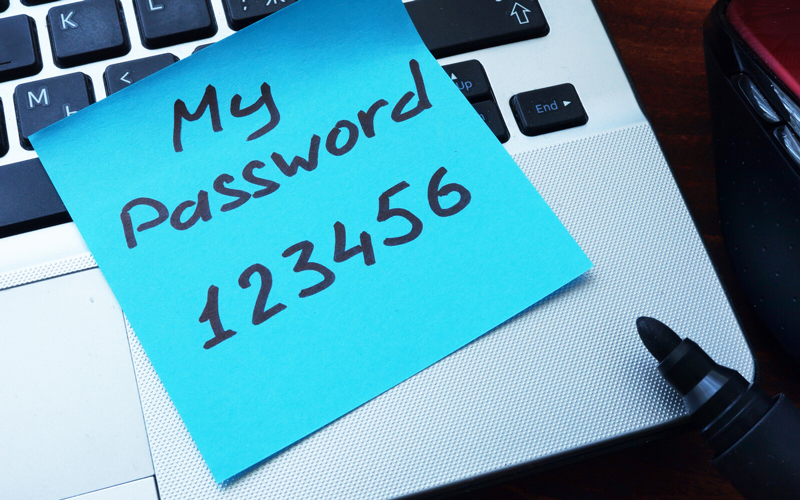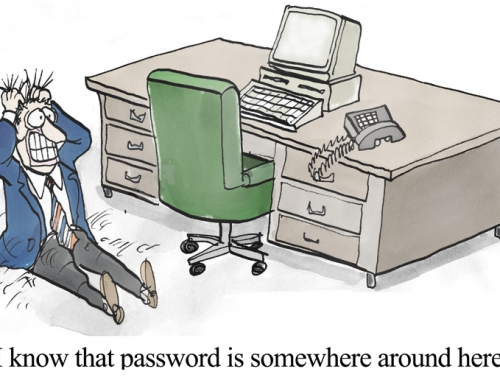You’re so excited about your new website. After weeks of work, it’s just about ready to launch and the developer needs the credentials for your hosting service. That’s when you remember Larry.
Ah, Larry. When you launched the current version of your website four years ago, he was your technology Larry-of-all-trades, overseeing the network and helping your staff solve software issues. Smart guy, but his toxic personality triggered one too many problems. You still remember his hostility during your exit interview. So guess who has the password and whose name is on the hosting company’s records as your domain’s owner?
Or maybe it was that new marketing-focused site you wanted to launch before the pandemic. You came up with a great URL you were amazed was still available and had your marketing agency design a beautiful site that Covid-19 forced you to put on the shelf. You’re finally ready to launch it, and you’ve invested in a slew of marketing materials to support it. Just one problem. You failed to buy the domain and someone else snatched it up. Fortunately, he’s not using it and would be happy to sell it … for a five-figure amount.
Today, your company has marketing technology options nobody could have envisioned a generation ago, and it’s no surprise businesses race to embrace these new ideas and platforms. But in their enthusiasm to adopt the latest and greatest, they all too often forget about the practical and the more mundane. Things like who really owns the rights to a piece of content. Who established the password for the administrator’s account and where it’s stored. Whether the new channel is compatible with other marketing channels or it will require double efforts.
We’re encountering an increasing number of those situations as we work with new clients. The bubbly administrative assistant who happily managed the company’s Facebook and Instagram presence until she and her husband moved to Georgia. She hadn’t thought to share the passwords with anyone else and she just doesn’t remember them anymore. Or that perfect photograph of Model XT42A that appeared on the last version of the company’s website, created by a vendor that’s no longer in business. Or the domain renewal that slipped someone’s mind, allowing an opportunist to hold the company hostage.
As a result, we frequently find ourselves in the role of forensic investigators, digging through the back rooms of the internet to find ownership documentation, login information, and digital assets that often turn out to be owned by someone other than our client. Then we switch hats and become negotiators, trying to convince someone to release a domain for a fraction of their demand or ask a competitor to unlock its hold on a key digital file.
It wouldn’t happen if companies (and their vendors) paid closer attention to the finer points and annoying details such as passwords. You need to treat these often-intangible marketing assets as though they were gold. If your company owned ten bars of gold bullion, you’d have them stored safely, know exactly where they were, and have determined exactly who could access them. Your online assets may be even more valuable to your company and its continued viability, yet I’m willing to wager at least some of the critical information about those assets is scrawled on a post-it note in someone’s desk drawer.
If your company is using a marketing agency, you’ve entrusted that agency with your company’s reputation and confidential knowledge about your operations, pricing, and a host of other sensitive issues. If that agency isn’t also helping you manage and oversee the minute details of your digital assets and presence, they’re inadvertently setting you up for future nightmares. Allowing them to register as the owners of your domain may seem easier than making sure your name is on the documentation, but what happens if your relationship with them sours in a year or two? Will taking the easy way out allow an unscrupulous vendor to punish you somewhere down the road?
So do you know the password for your company’s LinkedIn page? Can you name the technical contact on the registration for your website’s domain and are you aware of when it next renews? You’ve spent a fortune on those product photos and videos, but are you completely confident they belong to you? Who in your company is empowered to start an account on a new social media channel and how do you prevent them from using “12345678” as the password?
If you’re not sure of the answers to all of those questions, I’d recommend finding out just as soon as you can and making sure your marketing and technology partners are protecting your assets.
Deborah Daily is co-owner of Buckaroo Marketing | New Media.
Published: July 15, 2021
Website Link: Inside Indiana Business – 07-15-2021
PDF Version: Inside Indiana Business – 07-15-2021 (PDF Format)






